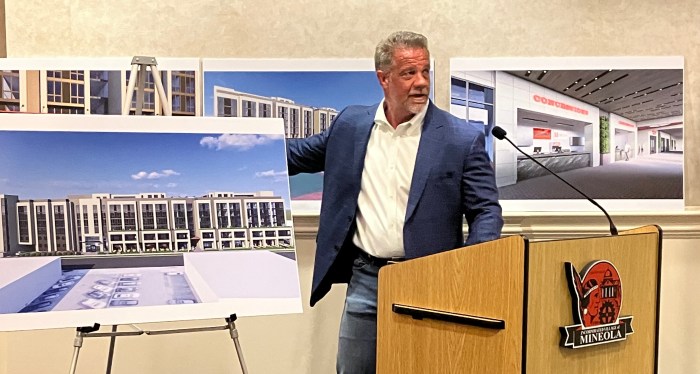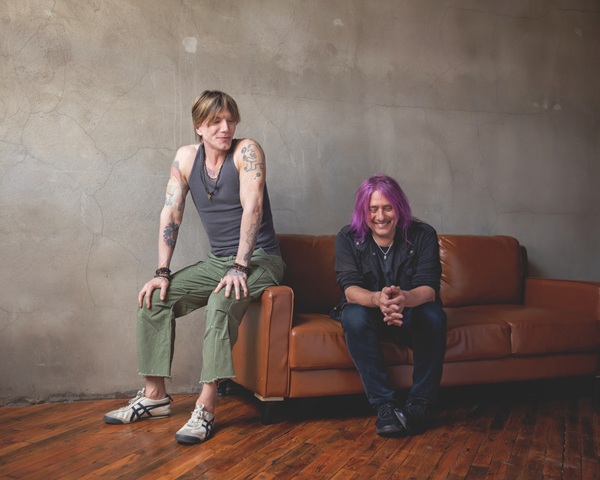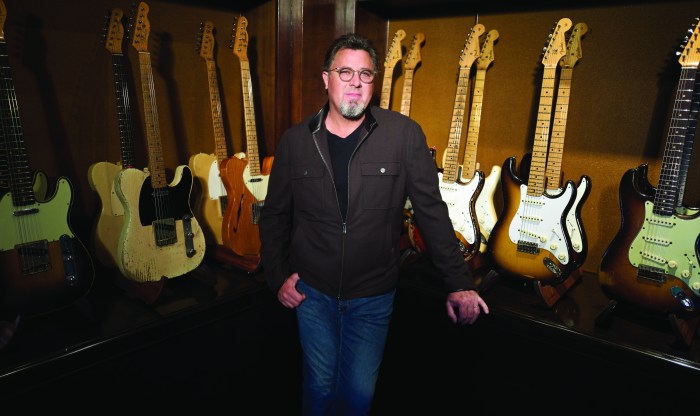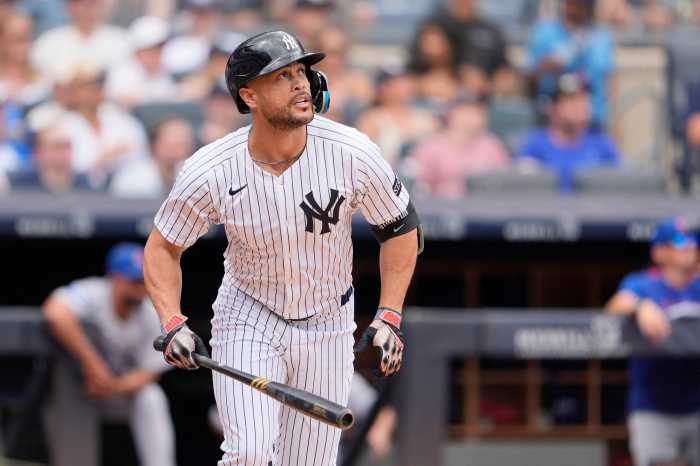
In the four-plus decades that Aerosmith has operated under that name, there have been plenty of crossroads the band has approached be it the departures of founding members (Joe Perry in 1979 and Brad Whitford in 1981), an MTV-aided resurrection following a mid-’80s reunion or seemingly-constant bouts with drug abuse. In more recent years it’s ranged from Steven Tyler’s 2009 autobiography Does the Noise in My Head Bother You? and subsequent two-season stint as an American Idol judge that combined to nearly get him bounced from the band to bassist Tom Hamilton’s two bouts with throat cancer in 2006 and 2009. Currently touring behind its fifteenth studio album, 2012’s Music from Another Dimension, Aerosmith is also at the end of its contract with Columbia Records. As to whether this means there will never be another studio album of original material from the New England quintet or a series of EPs released every six months according to a recent Joe Perry interview remains to be seen. For Hamilton, reuniting with longtime producer Jack Douglas on Dimension for the first collection of original material since 1982’s Rock In a Hard Place made it clear to him what the band’s decision should be.

“Jack was very much a very unifying force. When we all got on the same page in using Jack, we all realized that we should all get on the same page as making this record because everyone loves and respects the guy and is willing to have him be there in that leadership position. Once that was established, the stuff came pouring out,” he explained. “It was so important to everybody to be a part of it in deeper ways. There was also that feeling like, ‘My God, you never know, this might be the last album we ever make.’ It has that kind of importance and depth to it. It was really important to everybody to have a voice in the record in both a virtual and literal way. Now I feel like we should take what we just learned, go back in the studio and do another one.”
Getting back to the studio will have to wait as Aerosmith is in the midst of its “Let Rock Rule Tour” that will take them through the United States and Canada for the rest of the year. All this follows a swing through Europe where Aerosmith played Germany, Russia, Denmark, France and Italy before wrapping up in London. (A show in Kiev wound up getting cancelled). All this touring for a band whose members’ mean age is 63.4 has become a necessary age as the advent of technology has irrevocably changed the music industry, a fact Hamilton readily admits.

“The technology has made a gigantic difference [in how things are done and something] that the record industry was completely decimated by. The ability to make multiple digital copies of any song and give it away or sell it and it’s so frustrating to see it portrayed in the media as being this wonderful peer-to-peer system where the music is free. [And the idea that] the music should always be free and knowing what a bunch of bullshit it was,” he said.
“But I never had this bitter feeling of wanting to get revenge. I always felt that somehow if you were making good music, you’d do okay as long as the songs are good and you play good live. That’s why we’ve been on the road so much is because you have so many new fans in new countries that are discovering us. So maybe they would never have had an opportunity to hear us if they had to spend $18 to buy an Aerosmith album. Maybe because all these kids have been able to hear us, now they want to hear us live. Every year, the world seems to open up more for us.”

And while the imminent release of Joe Perry’s forthcoming October autobiography Rocks: My Life In and Out of Aerosmith might be the source of upcoming controversy, Hamilton feels the band has learned how to weather these waves over time, dating back to the late ’70s/early ’80s departures of Perry and Whitford.
“It’s a very suspenseful thing. I just accept the fact that this thing is coming out and we’ll see what happens. I think those four years in the late ’70s and early ’80s where we were brought face-to-face on what it would be like to lose the band is the thing I think that really stuck [with keeping Aerosmith together],” he recalled “Another thing that took place during that period was that we had a manager who had the balls to sit us down and say that we all had to get clean if our getting back together was going to work. We couldn’t be on the road expecting one guy to stay clean while everyone else was around the corner smoking a joint. It wasn’t a message I wanted to hear but once I got that concept, it became really important. And I think that’s another little element there that’s sort of a way of saying that we’re all kind of responsible for how each other is doing in a lot of ways. And one of the ways is that you take care of yourself and the other way is that you try really hard to understand where the other guy is coming from instead of having a knee-jerk reaction of being pissed off at every little slight.”

Part of taking care of oneself has found Tom Hamilton being more cognizant of his health now that he’s been cancer-free since 2009. It’s found him looking to eat better, get more rest and not take for granted that his body would automatically bounce back and take care of itself. And while the future for Aerosmith in the studio is a mystery, the lanky bassist hasn’t let his recovery keep him from creating.
“A couple of years ago my doctor said they liked to wait until I got to my fifth year but if this thing was going to do anything to me, it would have happened already. I haven’t spent a lot of time thinking about it but every once in awhile, I have to have those checkups and they’re pretty suspenseful,” Hamilton said with a laugh. “I’ve been piling up ideas and riffs for a long time and I realized that some of this stuff may never see the light of day unless I finish it. I can’t always hope that Steven is going to have time to finish up every riff that I come up with. It’s just not possible so I learned to do was work with the recording software, so I can go into the studio anytime I want with my laptop and at least make a good-sounding demo of a song idea. I see it as an ongoing, constant process. Obviously, there are certain times when you’re concentrating on album production versus touring. But you can be in this mode where you’re always watching out for this idea that might help you finish a song that you’ve been sitting on for a while. As a writer, you’re never not writing. You’re always on the lookout.”



































